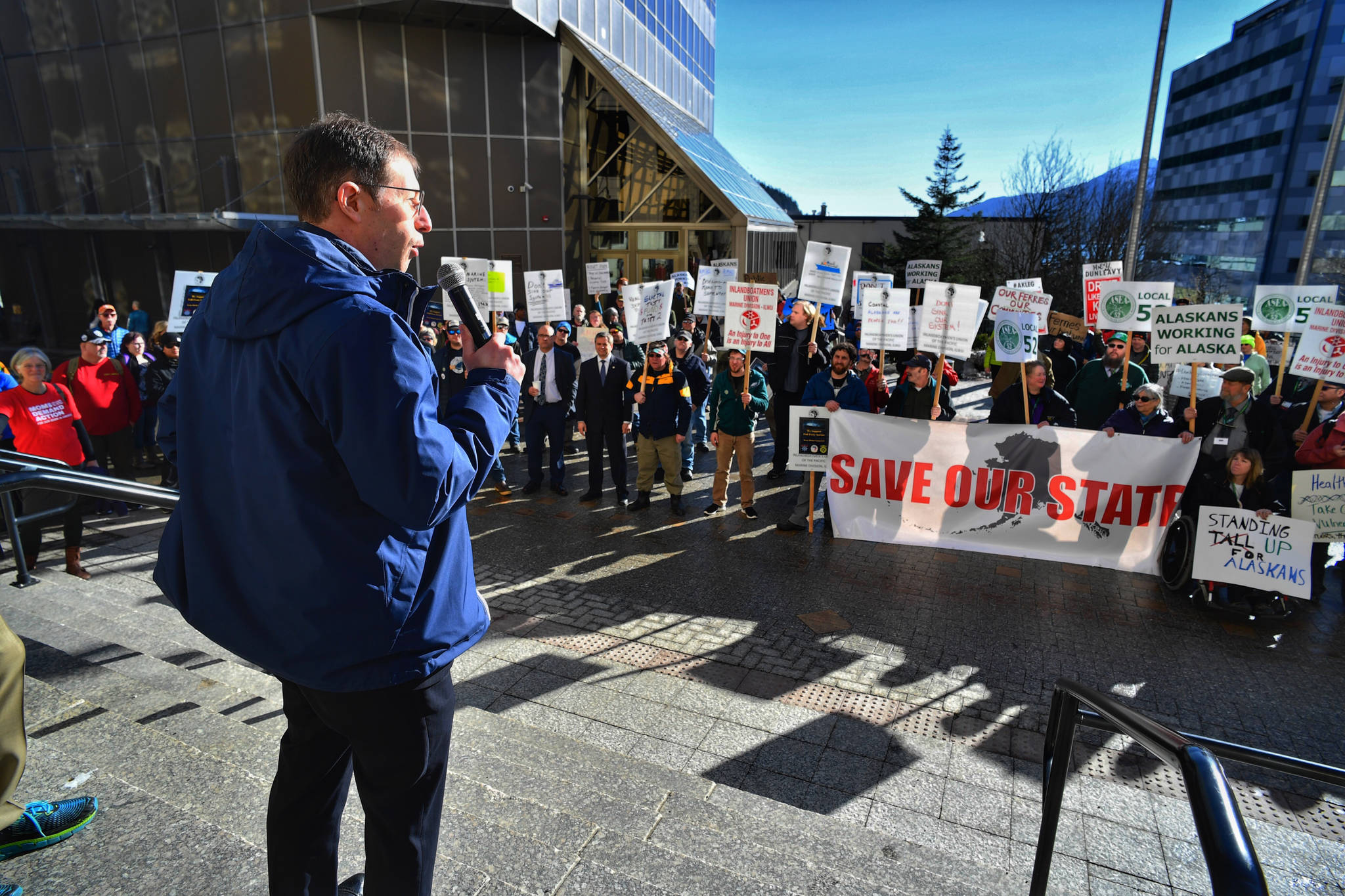Southeast business owners and operators shared their thoughts on the state’s fiscal situation in a survey this month, pushing back against some of the key components of the governor’s fiscal plan.
Each spring, Southeast Conference and Rain Coast Data do a business climate survey throughout Southeast Alaska, and this year the survey asked business owners a topical question: How would they like to see the state achieve a balanced budget?
Nearly 80 percent of owners and managers polled responded that they want the state to reduce tax credits given to oil companies, and 71 percent were in favor of reducing individual Permanent Fund Dividend payments.
Rain Coast Data Director Meilani Schijvens said the results were “completely shocking but not at all surprising,” and when specifically asked about the PFD response, she said it appeared that business owners are eschewing short-term fixes for long-term ones.
“Obviously these are people who have a very long-term investment in the region and a healthy economy,” Schijvens said in a phone interview Tuesday. “Their focus is really, ‘Where can we get the biggest long-term gains in the region?’ and they’re not looking at maybe short-term sales. I can’t put words in their mouths, obviously.”
[Support or oppose? A statewide poll shows what some Alaskans think about Dunleavy’s budget]
Southeast Conference President Dennis Watson gave a similar explanation in a press release.
“Our business leaders are risking their personal investments in order to create long-term jobs in the region,” Watson said in the release. “They are used to prioritizing budgets and know what it takes to build a stronger economy in Southeast Alaska.”
The survey was done this month, and polled 320 business owners or operators in the region. Twenty-five communities are represented, and Schijvens said just under 100 business owners in the survey are based in Juneau.
The business owners were asked to rate their thoughts on budget categories on a scale with five options. For example, in the “reduce individual PFD payments” budget option, those polled responded as follows: 38 percent selected “Yes, to the fullest extend possible;” 22 percent selected “Yes, in moderate amounts;” 17 percent responded “Yes, but by a small amount;” 16 percent responded “No, don’t change this;” and 7 percent selected “Don’t know.”
The most vehemently approved option (with 38 percent saying “Yes, to the fullest extent possible”) was the option to reduce oil tax credits. Gov. Mike Dunleavy’s budget proposal makes large cuts almost across the board, but preserves oil tax credits given to oil companies in an attempt to attract business to the state.
The most passionately opposed option (with 76 percent responding “No, don’t change this”) was the option to apply a statewide property tax.
By and large, those polled disagreed with Dunleavy’s budget proposal in a few key areas. While Dunleavy wants to preserve the PFD, those polled overwhelmingly responded that they would like reduced PFD payments and more use of the Permanent Fund earnings reserve to pay for state services (66 percent in favor).
While Dunleavy has proposed cuts to Medicaid, Alaska Marine Highway funding and K-12 funding, those polled were not in favor of any of those cuts. Business owners polled were also slightly in favor of a statewide income tax (63 percent in favor, 34 percent opposed), though Dunleavy has been vehemently opposed to that.
[State considers adding additional terminal in Juneau for new ferries]
One slight agreement with Dunleavy in the poll was 55 percent of respondents saying they’d be in favor of cuts to the University of Alaska funding. Dunleavy has proposed a $134 million cut to the University system.
“The message you’re getting from Southeast business owners is, ‘We really want to invest in our region and our people in order to grow our economy,’” Schijvens said. “It’s a very different tenor than what we’re seeing on the state side.”
Schijvens said she doesn’t know of any similar survey that’s been done in the state this year, but she mentioned that Alaska AFL-CIO also released a poll this week that covered somewhat similar ground.
An unfavorable response
The AFL-CIO poll, which was done through national polling firm Lake Research Partners, asked 500 Alaskans between March 30 and April 3 whether they approved of Dunleavy and whether they approved of his budget proposal.
Fifty percent of those polled expressed an “unfavorable” opinion of the governor when presented the options of “favorable,” “unfavorable” and “no opinion/not heard of.” Forty percent of those polled responded with a “favorable” opinion.
When asked if they favored, opposed or had no opinion about the governor’s budget proposal, 63 percent of those polled said they were opposed to the budget. Alaska AFL-CIO President Vince Beltrami said in a release that the poll results reflect that many people are worried about the governor’s budget.
“The Alaska AFL-CIO remains firm in its position opposing this budget and is not alone in our opposition,” Beltrami said in the release. “This budget isn’t just bad for workers and their families, it’s bad for all Alaskans.”
• Contact reporter Alex McCarthy at amccarthy@juneauempire.com. Follow him on Twitter at @akmccarthy.

